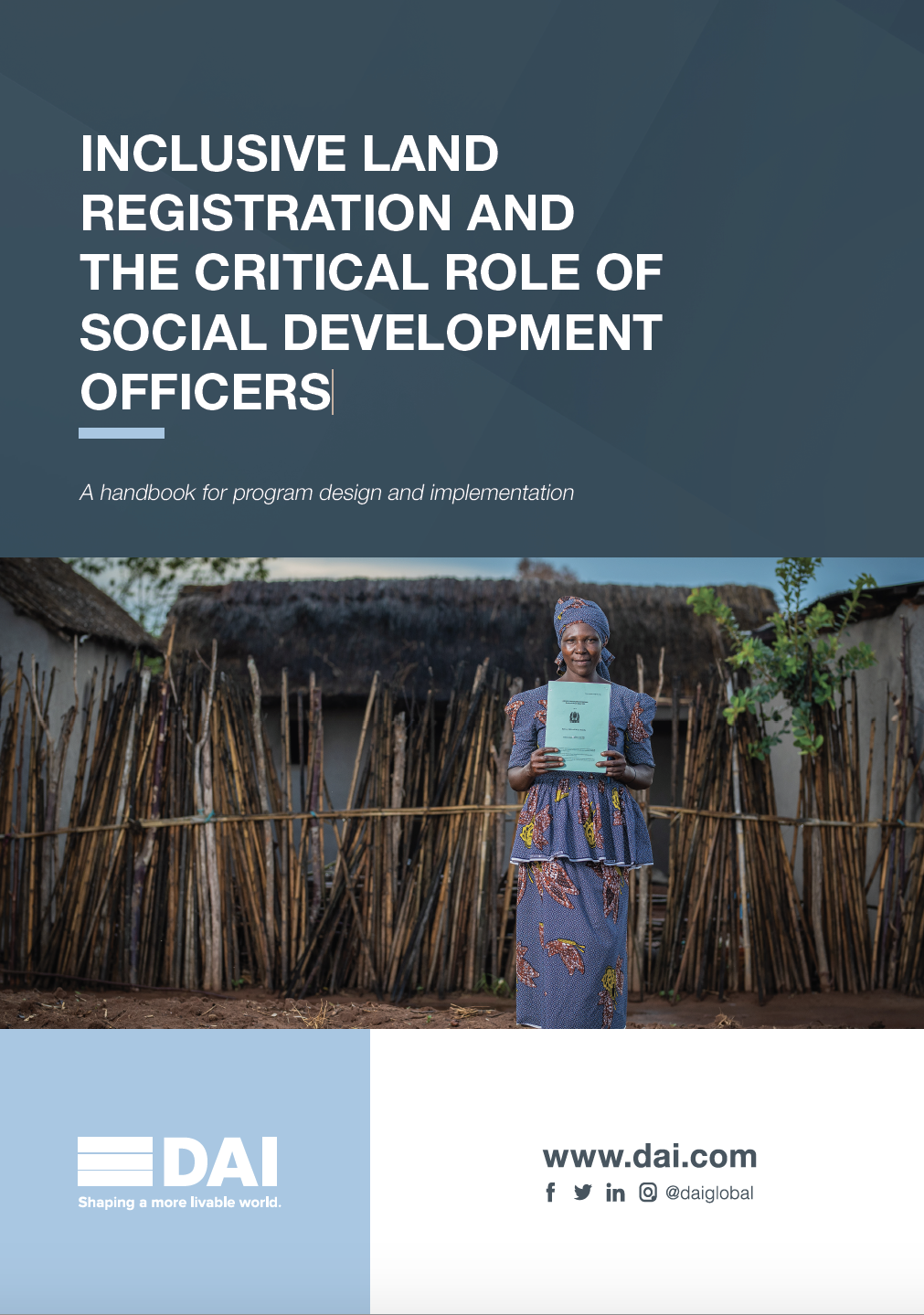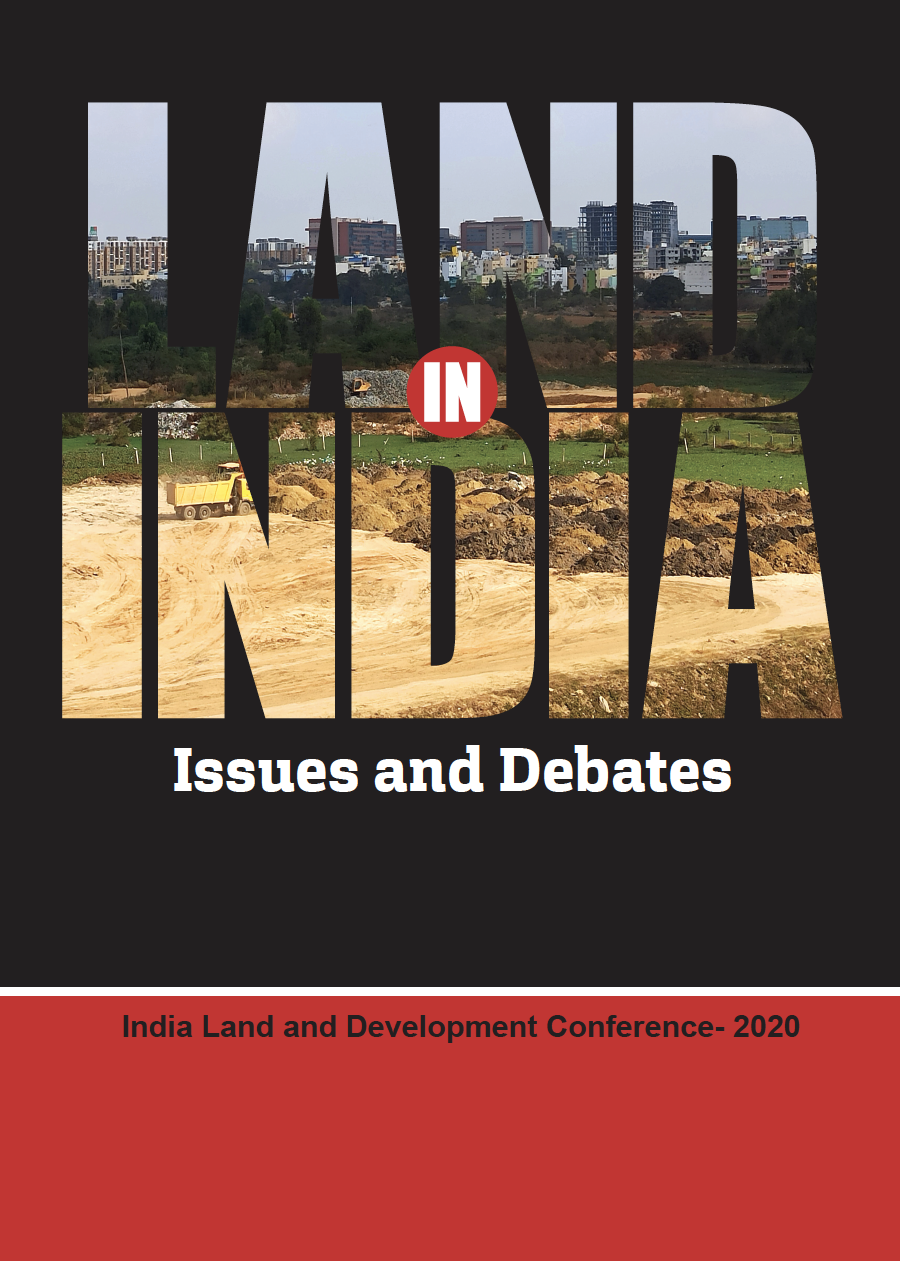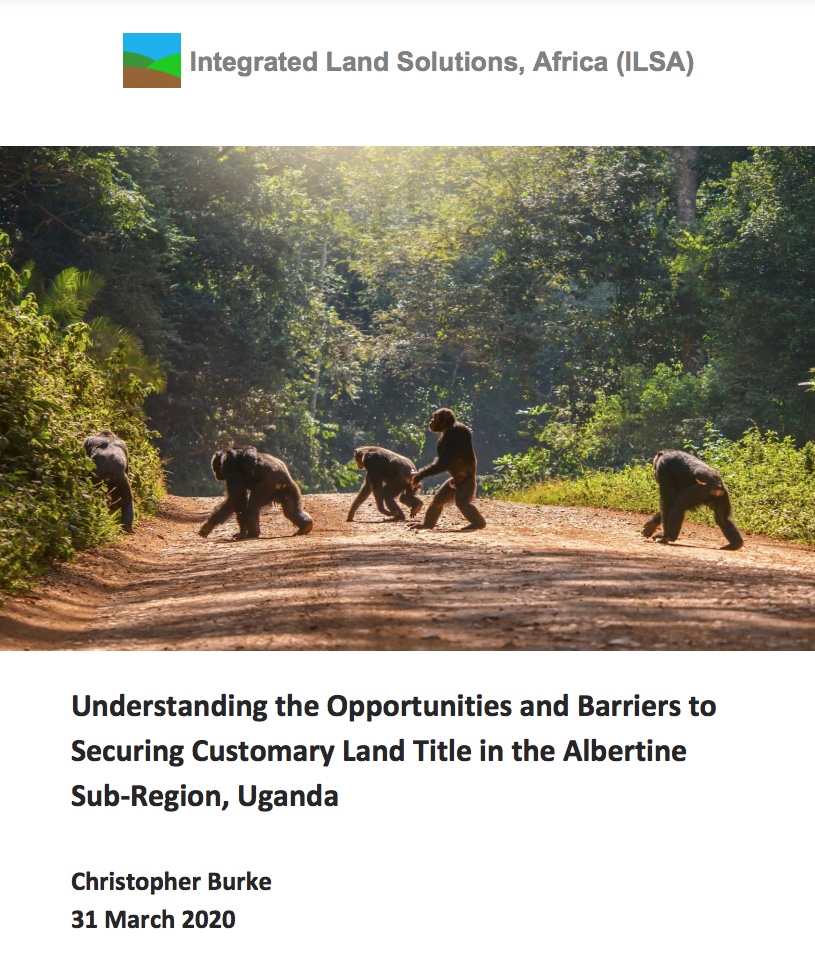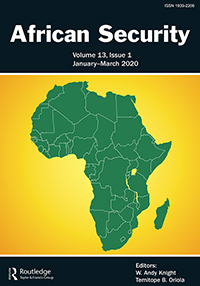Inclusive Land Registration and the Critical Role of Social Development Officers
This guide identifies lessons learned and outlines critical steps that countries can apply to their own rural land administration programs as they strive to ensure these programs become more gender and socially inclusive. The document provides a valuable learning resource to help governments and communities implement inclusive land programs.









